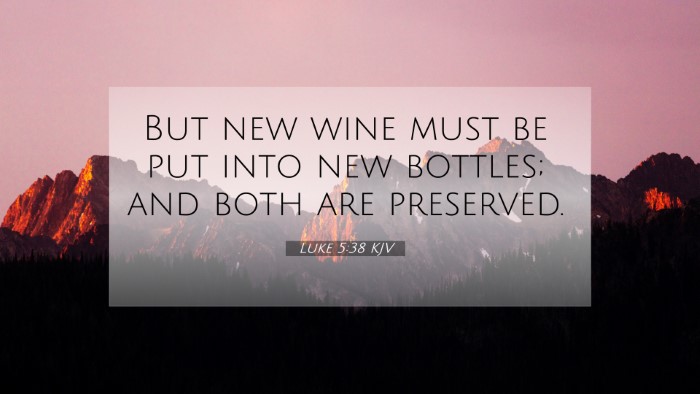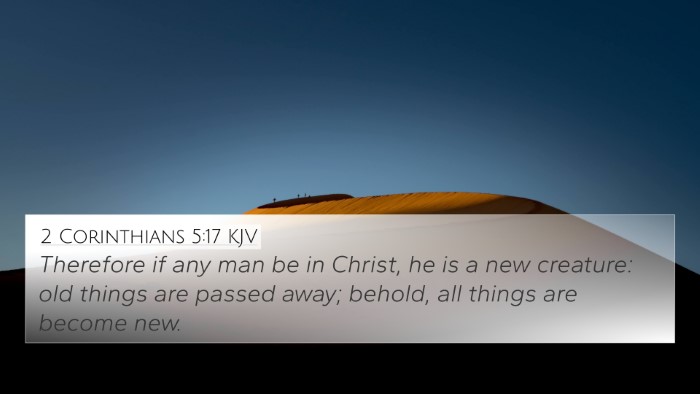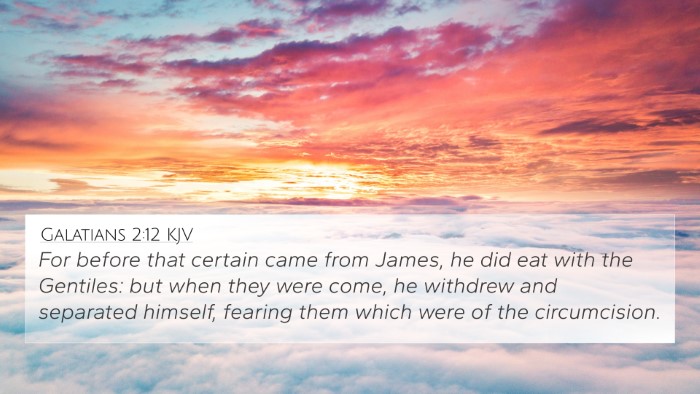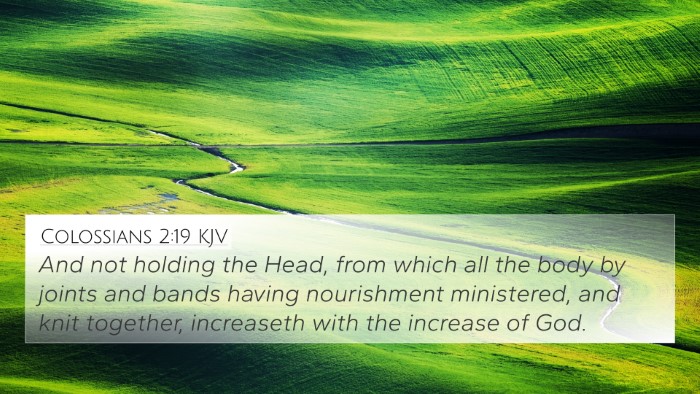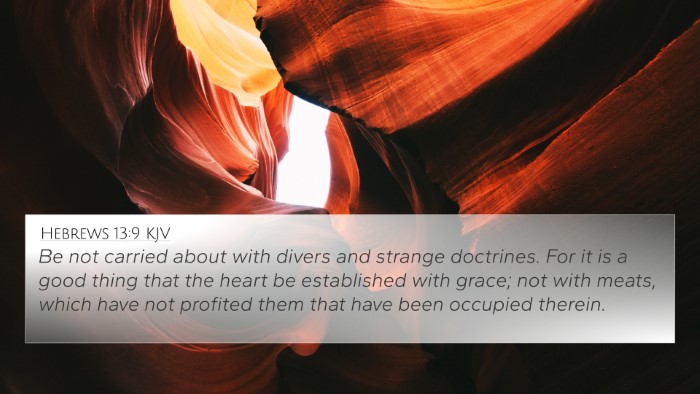Understanding Luke 5:38
Verse: "But new wine must be put into new bottles; and both are preserved."
Luke 5:38 presents a profound teaching of Jesus that can be connected to broader themes found throughout Scripture. This verse illustrates the principle of renewal in spiritual contexts, emphasizing that the new teachings of Christ require fresh capacities to hold them. This summary combines insights from various public domain commentaries, including those of Matthew Henry, Albert Barnes, and Adam Clarke.
Summary of Insights
-
Matthew Henry's Commentary:
Henry emphasizes the metaphor of 'new wine' representing fresh revelations from God and the 'new bottles' as the hearts of believers needing transformation. He argues that old traditions cannot adequately house the new movements of the Spirit, indicating a need for spiritual renewal.
-
Albert Barnes's Notes:
Barnes notes that Jesus illustrates the incompatibility of the old way of religious observance with new grace. He points out that just as new wine needs new skins to expand without bursting, the new covenant requires a fresh framework for its understanding and practice, which challenges existing ones.
-
Adam Clarke's Commentary:
Clarke expands on the need for a transformative approach to the new teachings of Christ. He suggests that the reference to 'new bottles' calls for believers to be renewed in spirit and thought to accept Jesus's revolutionary teachings fully.
Biblical Cross-References
Luke 5:38 is intricately connected to several other passages, illustrating various aspects of renewal and the transformative power of Jesus's message:
- Mark 2:22: "And no man putteth new wine into old bottles: else the new wine doth burst the bottles, and the wine is spilled, and the bottles will be marred: but new wine must be put into new bottles." - This parallel verse emphasizes the same teaching on the necessity of new vessels for new teachings.
- Matthew 9:17: "Neither do men put new wine into old bottles: else the bottles break, and the wine runneth out, and the bottles perish: but they put new wine into new bottles, and both are preserved." - Another Synoptic account that reinforces the metaphor of transformation.
- 2 Corinthians 5:17: "Therefore if any man be in Christ, he is a new creature: old things are passed away; behold, all things are become new." - This verse reveals the internal change that accompanies acceptance of Christ.
- Galatians 6:15: "For in Christ Jesus neither circumcision availeth any thing, nor uncircumcision, but a new creature." - Paul points out that the new identity in Christ surpasses old religious identities.
- Romans 12:2: "And be not conformed to this world: but be ye transformed by the renewing of your mind..." - The call to renewal in understanding and beliefs connects deeply with Luke's message.
- Isaiah 43:19: "Behold, I will do a new thing; now it shall spring forth..." - This prophecy speaks of God’s intention to do something new, which aligns with Jesus's ministry.
- Ephesians 4:22-24: "...that ye put off concerning the former conversation the old man, which is corrupt according to the deceitful lusts; And be renewed in the spirit of your mind; And that ye put on the new man, which after God is created in righteousness and true holiness." - This passage emphasizes personal transformation and renewal.
Thematic Connections and Insights
Connecting Luke 5:38 to other scriptures enables deeper understanding of the themes of transformation and adaptation that run through the Bible:
-
Transformation:
The call for transformation is central to both the Old and New Testaments. For instance, Jeremiah 31:31-34 speaks of a new covenant, while Matthew 5:17 indicates that Jesus did not come to abolish the law but to fulfill it.
-
Spiritual Renewal:
As noted in Philippians 3:13-14, Paul speaks of pressing toward the goal for the prize of the high calling of God in Christ Jesus, which is in harmony with the message of embracing new ways of understanding God’s will.
-
Openness to New Work:
The narrative of Acts 10, where Peter learns that the Gospel is for Gentiles as well as Jews, exemplifies the breaking of old boundaries and perceptions for the new work of the Holy Spirit.
Applications in Christian Living
Understanding Luke 5:38 invites believers to reflect on their spiritual lives and readiness to embrace change:
-
Embrace Change:
As believers, there is a calling to be receptive to how God might lead us into new ways of thinking and acting, similar to how the early church adapted to new teachings.
-
Personal Renewal:
Engaging with scripture should lead to personal renewal, prompting believers to renew their minds and spirits regularly.
-
Community Growth:
The metaphor also extends to church communities, urging them to create environments that welcome new insights and diverse expressions of faith.


